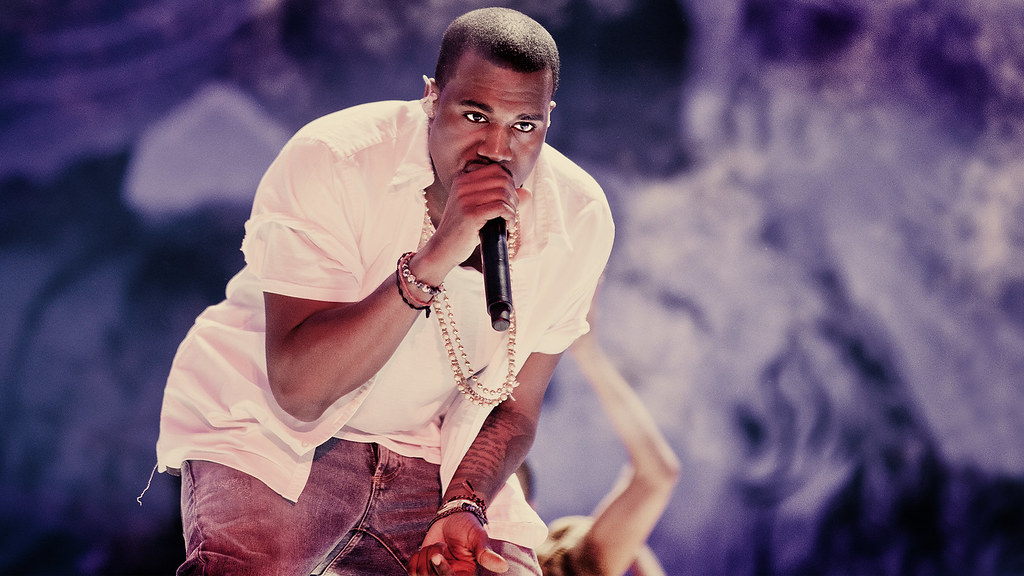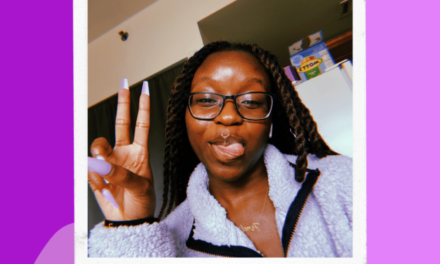In early October, Kanye ‘Ye’ West debuted a “White Lives Matter” T-shirt at Paris Fashion Week. He responded to subsequent backlash by writing mockingly on Instagram, “my one t-shirt took allllll the attention.”
Since the release of The College Dropout, the mega-rapstar-turned-billionaire has laid his heart on the track while putting his reputation on the line by triggering one controversy after the next. Typical Kanye, right? From interrupting Taylor Swift’s award speech to crying during his 2020 presidential campaign about almost aborting his daughter, fans and media outlets have often dismissed Kanye’s behavior in favor of his powerhouse discography. Furthermore, many have sympathized with the passing of his mother, Donda West, whom his most recent album is named after.
“The giant looks in the mirror and sees nothing,” Donda tells her son in his biographical docuseries, jeen-yuhs. Although some have found Ye’s egomaniac traits less palatable, his mental health crises acts as a scapegoat for his problematic behavior. Fans often disentangle the creative giant’s work from its creator or romanticize it as a work of crazy genius. Even after Ye suggested that 400 years of slavery was a choice, who was really skipping N*ggas In Paris?
Are we, as consumers, justified in continuing to find this problematic behavior typical? After relishing in controversy, the superstar succumbed to cancel-culture after claiming he would go “death con 3 on Jewish people,” and lashing out at the family of George Floyd. The possible downfall of yet another Black creative has prompted fans and haters alike to question if the man can be separated from the music? Or the art from the artist?
In the 20th century, this debate emerged as a form of objective literary analysis, by treating art as if it stands alone from the artist. However, drawing this line discredits the self-expression behind art and the legacies of minority artists who utilized visual art, music, and literature to protest discrimination. In the modern era, this theory has been contorted to justify consuming art as if it takes on a life of its own.
R. Kelly and Chris Brown’s lustful melodies are rendered unconvincing in light of their despicable actions against women; yet, in an act of cognitive dissonance, people continue to listen to their music. Regardless of whether Bump N’ Grind was about illegal relations with a minor, subjectivity allows people to derive their own meaning from Kelly’s mind telling him no, but his body, his body telling him yes. Even after video proof was released, and a parody of his court case premiered in an episode of the Boondocks, R. Kelly was still very much present on many cookout playlists until recently.
Listen, no one is saying Chris Brown can’t bust a move, but he did abuse multiple women, including Rihanna. Pushing his album Indigo to #2 on Billboard charts contradicts the woke mentality of those who shame him in public, but listen to him in private.
Most controversial of all is the King of Pop, Michael Jackson, who was acquitted for charges of child molestation despite undeniably having slumber parties with adolescent boys. Jackson made multi-million dollar settlements to the families of said children, and defended his concerning relationships with young boys.
There’s no denying his smooth voice and moonwalk captivated a generation, but one also cannot deny the pop star’s pedophilic track record which would be far less excusable in the case of an average person. We have put these artists on a platform by enjoying the art and ignoring the man, but can the spheres of personal life and bodies of work truly be separated?
While this concept can be applied more directly to music, complicit consumption in all regards is often more troubling than we would like to admit. For example, it has been well documented that the harvesting of cacao beans, used to produce your favorite chocolate bar, is possibly done by child slaves in Africa. There are a plethora of companies that have shady labor practices, particularly fast-fashion brands like Shein and Fashion Nova.
We often fail to hold mega-corporations accountable when their products are directly linked to sweat shops and wage slaves. Ideally, we should do more but a majority of consumers are complicit in feeding these giants that cannot see themselves in the mirror.
In the age of cancel-culture, performatively shaming one another has become a solution to dealing with one’s own feelings of guilt. However, someone doesn’t have to feel like a terrible human because 808’s & Heartbreaks got them through hard times, or No Guidance was simply unavoidable and maybe even a little catchy.
Canceling celebrities has gone beyond accountability and became a form of blacklisting which can be problematic if everyone is just following mainstream movements. However, call into question how one’s own consumership endorses the problems of the world. Stay woke, but not the cringey woke because when Kanye was anti-Black nobody said or did much.





